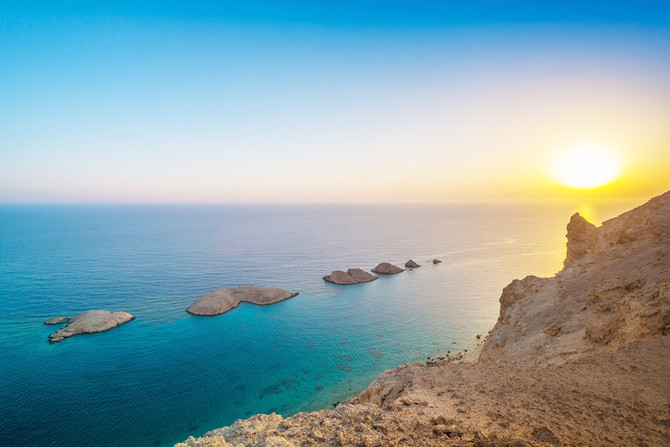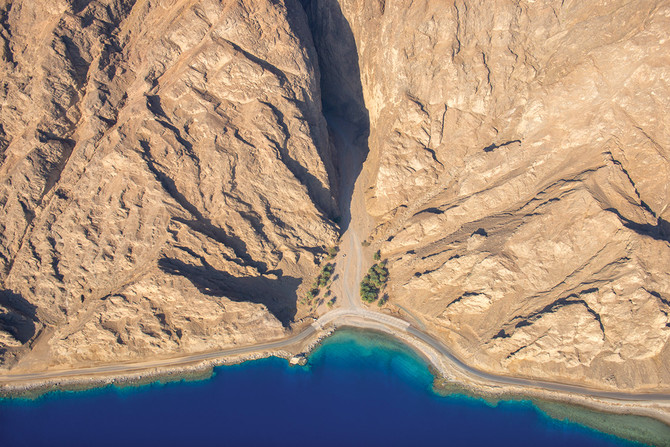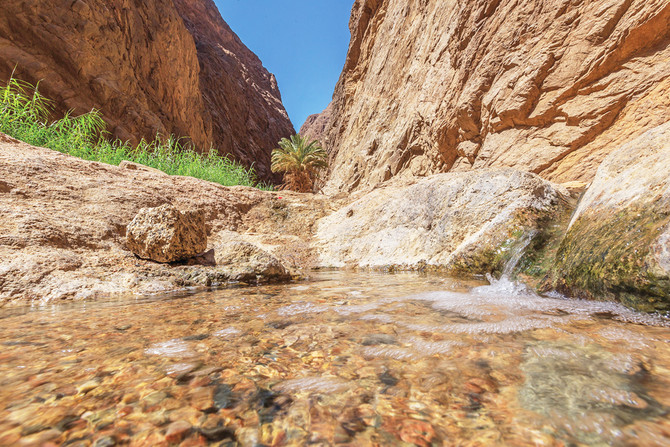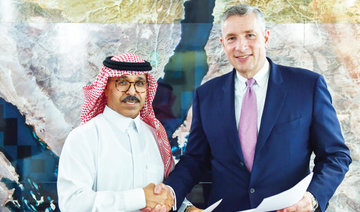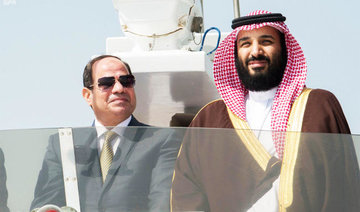JEDDAH: Saudi Arabia’s King Salman is on holiday in NEOM, where he will enjoy some rest and recreation, according to a statement released by the Saudi Press Agency.
This is an encouraging sign that NEOM, currently restricted to public access while under construction, is nevertheless progressing nicely.
This past October, Saudi Crown Prince Mohammed bin Salman unveiled the Kingdom’s plans for NEOM, a $500 billion, 26,500km2 transnational megacity and economic hub the likes of which the world has never seen.
Backed by the Kingdom’s vast Public Investment Fund, NEOM will operate as an independent economic zone powered solely by regenerative energy, spanning three countries, complete with its own self-governing laws and regulations and all strategically designed for economic stimulation. 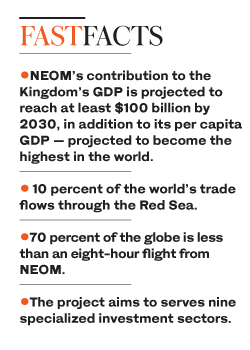
Today also marks the first day that Nadhmi Al-Nasr, NEOM’s newly appointed CEO, will assume his responsibilities after being appointed last month. Al-Nasr, who is a member of NEOM’s founding board, will transition from leading NEOM Bay to becoming NEOM’s overall CEO, replacing Dr. Klaus Kleinfield, with the former CEO becoming the personal adviser to the chairman of NEOM’s founding board, Saudi Crown Prince Mohammed bin Salman.
Kleinfield, a former CEO of Siemens AG (the largest industrial manufacturing conglomerate in Europe), will now undertake wider responsibilities that focus on enhancing the technological and economic development of Saudi Arabia as a whole.
Al-Nasr, who has more than 30 years of experience with Saudi Aramco, had worked on developing the strategy and development of NEOM Bay, one of the initial stages of NEOM. Al-Nasr’s responsibilities as CEO will now include furthering the strategic development, major initiatives, and business plans for NEOM’s core economic sectors.
The world’s first independent economic zone
Currently being developed in Tabuk, the northwest corner of Saudi Arabia that intersects Egypt and Jordan, NEOM is a pillar of Saudi Arabia’s Vision 2030, and is being precisely constructed with a foundation that serves nine specialized investment sectors: Energy, biotech, food, mobility, advanced manufacturing, technological and digital sciences, tourism, media, and entertainment; all sectors strategically designed to attract international investment, and all part of a grand push to diversify Saudi Arabia’s oil-centric economy.
Geographically situated at the center of world trade
NEOM is currently being built on a diverse terrain sheltered by mile-high mountains and cooled by breezes from more than 450 km of Red Sea coastline. Future guests will be able to enjoy previously untouched naturally formed beaches, islands, and vast desert terrains where even snowfall can be expected during the winter.
NEOM’s unique geographical location permits a climate temperature that is known to be roughly 10C cooler on average than the rest of the GCC. Located along one of the world’s most established economic arteries, the Red Sea, in which nearly 10 percent of all the world’s trade flows, NEOM is primed to bring together the best of not only the Middle East, but the world at large, as 70 percent of the world is less than an eight-hour flight away.
Supported by fully automated services along with zero-carbon infrastructure, NEOM will operate solely on wind and solar power. Thousands of solar panels paired with wind turbines will generate enough grids of stored power to supply all of NEOM all year round with low-cost regenerative energy.
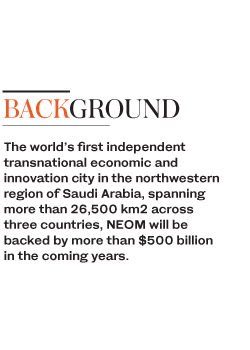 As an aspiring global hub for innovation, knowledge, and trade, NEOM will also establish itself as the prime entrance to the King Salman Bridge, a $4 billion causeway linking Western Asia and Africa. NEOM’s massive land mass will stretch across the Egyptian and Jordanian borders, and will thus establish itself as the first private economic zone to span three countries.
As an aspiring global hub for innovation, knowledge, and trade, NEOM will also establish itself as the prime entrance to the King Salman Bridge, a $4 billion causeway linking Western Asia and Africa. NEOM’s massive land mass will stretch across the Egyptian and Jordanian borders, and will thus establish itself as the first private economic zone to span three countries.
A hub for technology, energy, biotech, and digital sciences
NEOM aims to foster innovation through an open-source policy platform, where the world’s top scientists will have an open invitation to conduct research in the fields of medical science, artificial intelligence, and virtual reality. By adopting a regulatory framework that fosters technological growth according to the highest international standards, guidelines, and practices, scientists will have the luxury of having NEOM itself as a scientific testing ground for next-generation genomics, gene therapy, nanobiology, bioengineering, and stem cell research.


